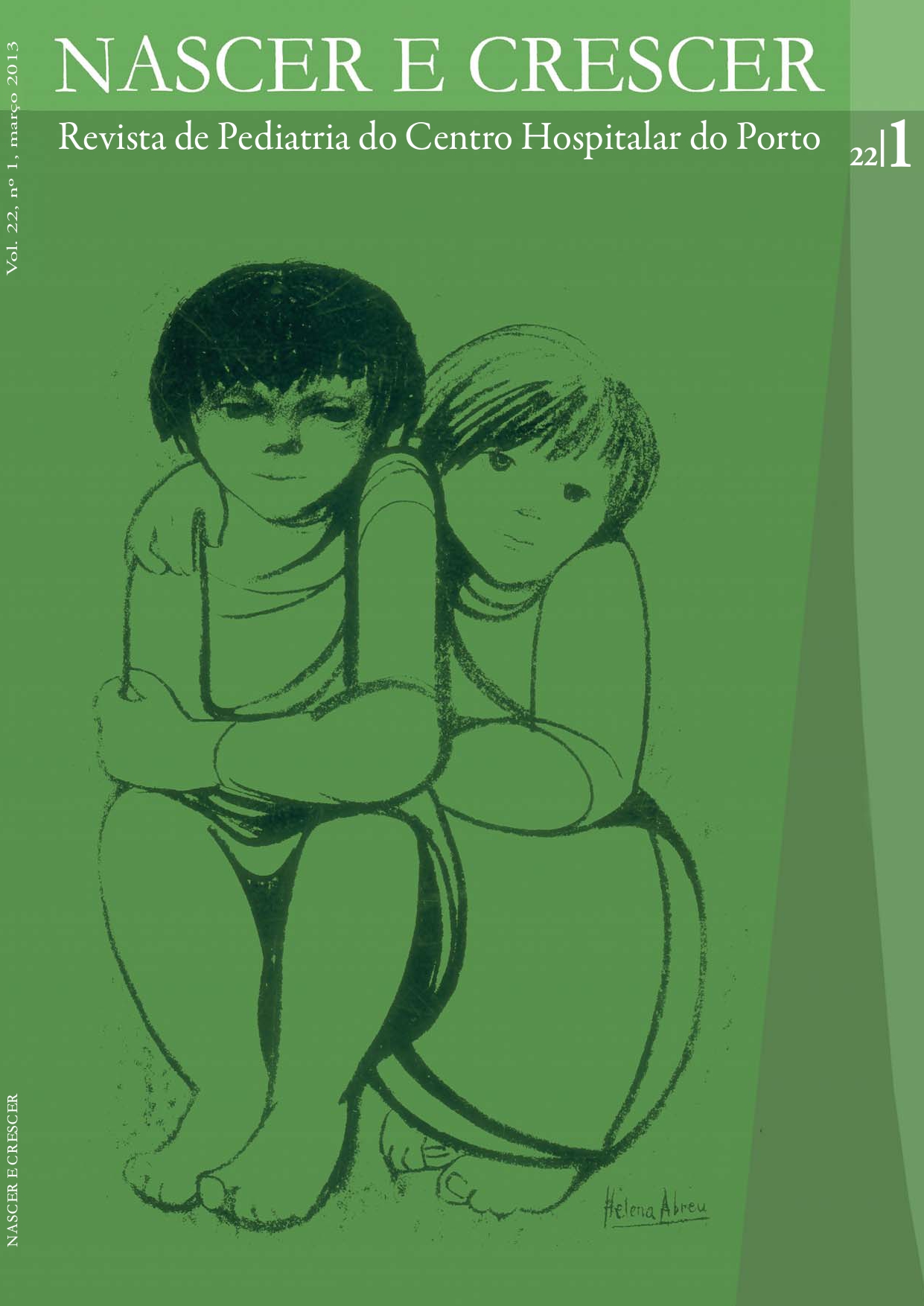CHARACTERIZATION OF INFECTIONS IN PATIENTS WITH 22Q11.2 DELETION SYNDROME
DOI:
https://doi.org/10.25753/BirthGrowthMJ.v22.i1.12887Keywords:
mmunodeficiency, infections, 22q11.2 deletionAbstract
Background: The 22q11.2 deletion syndrome (SD22q11.2) has an incidence of 1/2000 to 1/7000 live births. It is characterized by a variable degree of immunodeficiency that predisposes to infections, especially sino-pulmonary.
Material and Methods: A retrospective study of 12 patients with del22q11.2 de novo was performed, focusing on the immunological characteristics and the type and number of documented infections.
Results: The immunological studies showed one patient had severe T lymphopenia T and B lymphopenia with hypogammaglobulinemia associated with Evans syndrome, two patients had transient mild T lymphopenia, six had mild to moderate persistent T lymphopenia and three presented a normal immunological study. The mean incidence of infections was 0,5/year/patient (1,1/year/patient under age three). The most frequent were acute otitis media, pneumonia and bronchiolitis.
Discussion: There was a low number of infections/year/ patient, and these occurred mostly under the age of three years. The sino-pulmonary infections were the most documented and the evolution was generally benign. The transient and age-dependent nature of the immunological changes and the normal immune cell function, rather than the degree of T lymphopenia appear to contribute to this fact.
Downloads
References
Almeida R, Alvares S, Fortuna A, Moreira J, Vieira A. Associação
de Arco Aórtico Cervical a Delecção 22q11 - Papel da
RMN no Diagnóstico. Rev Port Cardiol 2003; 22:1241 -8.
Mastroiacovo P, Rossi P, Cancrini C, Azzari C, DiGilio MC,
Marino B, et al. Chromosome 22q.11 deletion - Recommendations
for Diagnosis and Treatment. Italian Primary Immunode
Þ ciencies Strategic ScientiÞ c Committee 2005. Disponível
em: http://www.aieop.org/stdoc/prot/rec_del22_en_06.pdf
Koshiyama DB, Rosa RM, Zen PR, Pereira VL, Graziadio C,
Coser VM, et al. Síndrome de deleção 22q11.2: importância
da avaliação clínica e técnica de FISH. Rev Assoc Med Bras
;55:442 -6.
Fernández L, Nevado J, Santos F, Heine -Suñer D, Martinez-
-Glez V, García -Miñaur S, et al. A deletion and a duplication in
distal 22q11.2 deletion syndrom region. Clinical implications
and review. BMC Med Genet 2009;10:48.
Bassett AS, Chow EWC, Husted J, Weksberg R, Caluseriu O,
Webb GD, Gatzoulis MA. Clinical features of 78 adults with
q11 deletion syndrome. Am J Med Genet A 2005;138:307-
-13.
Hay BN. Deletion 22q11: spectrum of associated disorders.
Semin Pediatr Neurol 2007;14:136.
Seroogy CM. DiGeorge syndrome: Evaluation, diagnosis,
and management. Disponível em: http://www.uptodate.com/
contents/digeorge -syndrome -evaluation -diagnosis -and-
-management
Seroogy CM. DiGeorge syndrome: Pathogenesis, epidemiology,
and clinical manifestations. Disponível em: http://www.
uptodate.com/contents/digeorge -syndrome -pathogenesis-
-epidemiology -and -clinical -manifestations
McLean -Tooke A, Barge D, Spickett GP, Gennery AR. Immunologic
defects in 22q11.2 deletion syndrome. J Allergy Clin
Immunol 2008;122:362 -7.
Bassett AS, McDonald -McGinn DM, Devriendt K, Digilio MC,
Goldenberg P, Habel A, et al. Practical Guidelines for Managing
Patients with 22q11.2 Deletion Syndrome. J Pediatr.
;159:332 -9.
Downloads
Published
How to Cite
Issue
Section
License
Copyright and access
This journal offers immediate free access to its content, following the principle that providing free scientific knowledge to the public provides greater global democratization of knowledge.
The works are licensed under a Creative Commons Attribution Non-commercial 4.0 International license.
Nascer e Crescer – Birth and Growth Medical Journal do not charge any submission or processing fee to the articles submitted.


